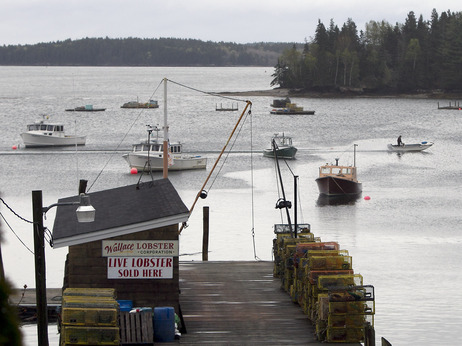The only thing that can make me forgive Robin Gibb of the Bee Gees for going over to the dark side (disco) in the late 1970s is the fact that he was a vegan?an ?ardent vegan? no less, according to Wikipedia.
Gibb, who was only 62, died last week of colon cancer. It?s unfair when anyone dies of cancer at such a relatively young age, but especially so when they are doing all of the right things?Gibb didn?t drink alcohol either?that should protect against this disease.
I?ve lost three friends to colon cancer. Two were vegetarians who died in their early 50s, and one was a vegan who died in his early 40s. It definitely feels a little surprising when vegans die from this disease, since there is very good evidence that diet affects colon cancer risk. Red and processed meats and excessive alcohol all increase risk while fiber appears to decrease it. The environment of vegetarians? colons?the types of bacteria that live there, for example?is significantly different in ways that protect against cancer.
One reader of this blog brought to my attention a study linking low vitamin B12 to increased risk for colon cancer. Depending on where Gibb was getting his nutrition information, this might have been a factor, although there is very little research on this.
Alternatively, it?s possible that Gibb?s diet was low in calcium, which might have placed him at increased risk. Calcium regulates cell growth in ways that are thought to lower risk for certain cancers. There is evidence to support a protective effect of dairy foods on colon cancer risk, which is most likely due to the calcium content of these foods. It doesn?t mean that vegans should start drinking milk to reduce their colon cancer risk, but it does mean that it?s important to make sure you?re getting enough of this nutrient. (And, aside from the ethical considerations, I?d opt for leafy greens and soyfoods over cow?s milk as calcium sources since they have other cancer-protective effects.)
The bottom line though, is that some vegans?including those who are doing all the right things as far as we know?get cancer. It?s popular to say that a vegan diet will make you ?bullet proof? against disease.? And it?s possible that some vegans become complacent because of this. A recent study in the New England Journal of Medicine suggested that removal of polyps through colonoscopy (advised for everyone after the age of 50) could reduce colon cancer risk by as much as 50 percent. Vegans who erroneously believe that their diet guarantees that they won?t get colon cancer might not bother with this exam, thereby increasing their risk.
I have no idea whether any of these considerations affected Robin Gibb. Sometimes despite following every recommendation for reducing cancer risk, people get cancer anyway. It is, after all, a hard disease to pin down. It develops over decades, and there is evidence that it?s what you ate 20 or 30 and 40 years ago that matters the most, not what you are eating now. I doubt that Gibb was a vegan for all of his life (although at least one article said he had been vegan for decades).
Even in late adulthood, of course, diet changes may affect the progression of cancer. Compounds in certain plant foods affect enzymes that allow tumors to spread, for example. So it?s never too late to start eating more healthfully. (That?s especially true for things like heart disease and hypertension which are more sensitive to current dietary habits.)
At any age, we vegans can expect that our compassionate diet has the added advantage of lowering our risk for certain diseases. But, vegan diets are not ?miracle? cures or guaranteed prevention and it?s a mistake to ever believe that they are. As always, the only true promise that comes with veganism is that it will remove your contribution to the use and abuse of animals.
?
References cited in this article:
?Zimmer J, Lange B, Frick JS, et al. A vegan or vegetarian diet substantially alters the human colonic faecal microbiota. Eur J Clin Nutr 2011.
?Dahlin AM, Van Guelpen B, Hultdin J, Johansson I, Hallmans G, Palmqvist R. Plasma vitamin B12 concentrations and the risk of colorectal cancer: a nested case-referent study. Int J Cancer 2008;122:2057-61.
?Zauber AG, Winawer SJ, O?Brien MJ, et al. Colonoscopic polypectomy and long-term prevention of colorectal-cancer deaths. N Engl J Med 2012;366:687-9
osu reno news shonn greene oklahoma state plane crash syracuse university best buy black friday 2011 ads broncos jets

